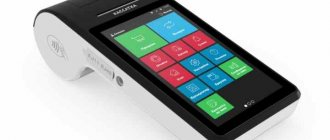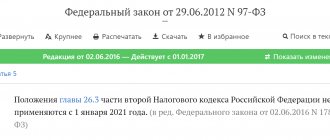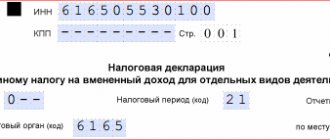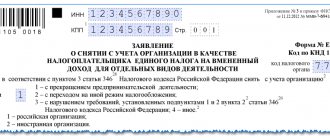Timing for the transition to online cash registers for individual entrepreneurs on UTII
Almost all imputations will switch to online cash register on July 1, 2021. Initially, the deadline was in 2021, but the government postponed the cash registers for another year (law of November 27, 2017 No. 337-FZ). Let us remind you that the deferment is enshrined in Federal Law 290-FZ, and Law 54-FZ “On Cash Register Equipment” does not regulate the timing of the transition.
Individual entrepreneur on UTII in retail or catering
- If there are hired employees - July 1, 2021.
- If there are no employees - July 1, 2021.
This applies to activities from paragraphs. 6–9, paragraph 2, art. 34626 of the Internal Revenue Code.
If an entrepreneur worked himself and then hired an employee, then within 30 days he must buy a cash register and register it.
- Rent an online cash register MTS cash desk 5
56 reviews
1 700 ₽
1700
https://online-kassa.ru/kupit/arenda-onlajn-kassy-mts-kassa-5/
OrderMore detailsIn stock
- Rent an online cash register MTS Kassa 7
43 reviews
1 700 ₽
1700
https://online-kassa.ru/kupit/arenda-onlajn-kassy-mts-kassa-7/
OrderMore detailsIn stock
The remaining individual entrepreneurs will switch to UTII in 2021
If an entrepreneur does not work in retail or public catering, he receives a deferment for online cash registers until 2021. It doesn't matter whether he has employees or not. The deferment is valid for entrepreneurs from paragraphs. 1–5 and 10–14, paragraph 2, art. 34626 NK.
Online cash registers for all types of businesses! Delivery throughout Russia.
Leave a request and receive a consultation within 5 minutes.
Combining UTII with simplified tax system or OSNO
Entrepreneurs on OSNO and simplified tax systems switched to new cash desks in 2017, except for representatives of the service sector.
It is necessary to keep separate records for different activities. Businessmen on the simplified tax system or OSNO are already required to use a cash register and send checks to the tax office. At imputation, you can issue BSO or payment documents according to the old rules and not use the online cash register until 2021 or 2021.
After the deadline for UTII, use one cash register if both activities are registered at the same address. To do this, the cash register and commodity accounting system must support several taxation regimes. The receipt must indicate the tax regime, and only one.
Subscribe to our channel in Yandex Zen - Online Cashier! Be the first to receive the hottest news and life hacks!
Beer sellers
Beer retailers are moving to online checkout just like everyone else. Thus, an entrepreneur with employees installs a cash register before July 1, 2021, and an individual entrepreneur on UTII without employees - before July 1, 2021.
But you still need to take alcohol into account in EGAIS.
Quote from the updated 171-FZ
Sellers of excise goods
They will switch to online cash registers in 2021 and 2021 (letter of the Ministry of Finance dated April 14, 2017 No. 03-01-15/22578).
UTII cannot be used when selling excisable goods from paragraphs. 6–10, paragraph 1, art. 181 Tax Code of the Russian Federation. That's why swindlers don't sell motor oil, gasoline or diesel fuel. Other goods can be sold on UTII.
Law 54-FZ does not say anything about separate deadlines for excise goods, so you can sell cigarettes without a cash register until July 1, 2021 and 2021.
1. Ask our specialist a question at the end of the article. 2. Get detailed advice and a full description of the nuances! 3. Or find a ready-made answer in the comments of our readers.
When to move
The deadlines for the transition to online cash registers for individual entrepreneurs on UTII are specified by law. The transition to online cash registers for individual entrepreneurs of this taxation system began back in 2021. Then sellers of beer and alcohol switched to online cash registers.
In the summer of 2021, individual entrepreneurs switched to online cash registers for UTII trade and public catering with hired employees. But even then, not everyone switched. Some entrepreneurs received a deferment.
Online cash register for individual entrepreneurs on UTII 2021
By 07/01/2019, the remaining part of the individual entrepreneurs on UTII will have installed online cash registers:
Trade entrepreneurs without hired employees,
Entrepreneurs in the catering sector without hired workers,
Entrepreneurs in the service sector without employees and with employees.
When and how to use
It is better to start using online cash registers for individual entrepreneurs on UTII in advance. You should not apply for the cash register on June 30th. There is a huge and almost 100% chance that you will be late. It’s worth contacting in advance to think about which model to choose. And choosing will not be easy. It will take time to register the cash register, configure and update the software. So it’s best to apply at least a month in advance. If you start working at the online checkout in advance, you will not be fined for this, but if you are late on time, you may be fined.
Important. Individual entrepreneurs on UTII are exempt from printing items on checks until 2021, provided that they do not sell excisable goods.
Online cash registers for individual entrepreneurs on UTII deferment
The head of the Federal Tax Service recently spoke out against delaying the transition to online cash registers for individual entrepreneurs without employees. There is no delay in using online cash registers. In 2021, a category of citizens “Self-Employed” will appear, which will be able to work without using a cash register. These are freelancers and all those who work for themselves, providing various services, that is, without hired people. This category will also have to pay taxes at the established rate.
Who can not use cash registers on UTII?
There are categories of entrepreneurs who do not need to use cash registers:
- Selling drinks on tap: kvass and milk from tanks, etc.
- entrepreneurs selling in undeveloped markets, fairs, and tents.
- Conductors, sellers of tickets, newspapers, printed publications.
- Sellers of securities.
- Shoe repairs, watches, small electronics and household appliances, etc.
- Nurses, nannies, porters, etc.
- Renting out your own home.
You can find a complete list of exceptions in 54 Federal Laws.
If you provide services without a cash register, you can issue a BSO. If you trade, you can issue a sales receipt.
Other exceptions
All entrepreneurs on UTII located in remote areas included in the list of remote areas exempt from the obligation to use cash register systems may not install an online cash register. These are all those hard-to-reach areas and regions where there is no Internet. They will also have to use the cash register, only offline, and report to the tax office. The list of such regions is approved by the Ministry of Communications of the Russian Federation. If an individual entrepreneur is located in a remote area and sells excisable goods (alcohol), then they must report to the OFD at least once a month. To do this, you will have to take the cash register to a place where there is internet.
For whom checkouts have been completely cancelled?
- Other LLCs or individual entrepreneurs transfer money to the entrepreneur to a current account through a bank. When paying in cash, you need to punch receipts on a new cash register.
- The businessman lives in a remote area. Local authorities publish lists of hard-to-reach settlements on their websites.
- The entrepreneur lives in an area remote from communications. Then the individual entrepreneur does not sign an agreement with the OFD. But at the same time, he must buy a cash register, a fiscal drive and register them with the tax office.
Activities from clause 2 of Art. 2 54-FZ
Entrepreneurs who are engaged in certain types of activities can work without a cash register even after 2021.
The seller of excise goods is obliged to use the cash register, even if he falls into clause 2, art. 2, 54-FZ “On cash register equipment”.
Sell some goods at the market only with a cash register
Market sellers work without a cash register. But the government has approved a list of goods that cannot be sold without a cash register at markets, fairs and exhibitions. The list included sporting goods, furniture, computers and 14 other categories.
Cash register in law
As the law states, all individual entrepreneurs who sell goods or provide services for cash or by accepting payments through bank cards are required to have and use cash registers when making payments to clients. This rule applies mainly to those business representatives who conduct business with the public, since it is citizens who pay for goods and services using cash or bank cards.
The absence of a cash register for an entrepreneur is possible if he carries out financial transactions using non-cash transfers to the bank accounts of legal entities or other individual entrepreneurs.
Examples of payment documents
An entrepreneur and his employees provide hairdressing services and sell beauty products.
Retail must be transferred to cash register before July 1, 2021, and services must be transferred before July 1, 2021. Until these dates, the entrepreneur issues BSO to clients for hairdressing services. When selling goods, issues a sales receipt or receipt at the buyer's request.
In a store on UTII, customers can pay for goods with cards
Before purchasing an online cash register, when paying by card, issue a terminal receipt. At the buyer's request, a payment document must be issued. After purchasing cash register equipment, when making payments using a card, you need to issue two receipts - a terminal receipt and a cash receipt.
Individual entrepreneurs without employees will have the right to work without cash register until 2021 (but not all)
Perhaps the largest category of business entities that received exemption from online cash registers in accordance with Law 129-FZ of 06/06/2019 are individual entrepreneurs without employees. True, their release is temporary, although quite long - until July 1, 2021.
At the same time, the right not to use cash registers - in accordance with Article 2 of Law 129-FZ dated 06/06/2019 (LINK) - is granted to individual entrepreneurs without employees:
- selling goods of their own production;
- independently providing services (and performing work).
We consider it useful to quote the text of Article 2 of Law 129-FZ dated 06/06/2019 in full:
Article 2
- Establish that individual entrepreneurs who do not have employees with whom employment contracts have been concluded, when selling goods of their own production, performing work, or providing services, have the right not to use cash register equipment when paying for such goods, work, and services until July 1, 2021.
- The individual entrepreneurs specified in Part 1 of this article, in the event of concluding an employment contract with an employee, are required to register cash register equipment within thirty calendar days from the date of conclusion of such an employment contract.
The method of payment - cash, card or bank transfer, does not matter. The individual entrepreneur has the right not to issue the payer anything instead of a cash receipt (but it will be useful to issue something - a sales receipt or BSO, to maintain customer/client loyalty). If you want to issue a sales receipt, then you can use a “traditional” one on paper (containing the details given in paragraph 2.1 of Article 2 of Law No. 54-FZ as amended on March 8, 2015 - which did not yet say anything about online cash registers) , if BSO - according to the rules reflected in Decree of the Government of Russia dated May 6, 2008 No. 359.
For more information about what documents entrepreneurs exempt from using cash registers can issue instead of a cash receipt, read THIS ARTICLE.
As soon as an entrepreneur has an employee, no later than 30 days after concluding a contract with him, the individual entrepreneur must register an online cash register. The law states (as well as other legal norms that link the deferment of online cash registers to the fact of the absence of hired employees) that this refers to an employment contract. But apparently, the deferment disappears even if a civil contract is concluded (used as an alternative to those drawn up under the Labor Code of the Russian Federation).
Video about the amendments being made to defer the installation of online cash registers for individual entrepreneurs until 2021:
If an individual entrepreneur has contractors in the form of individual entrepreneurs or LLCs, then he will certainly retain the right to not use CCP based on the criterion of lack of staff (unless, of course, the rare fact of the presence of actual labor relations between the individual entrepreneur as an employer and the business entity as a contractor is established). But - in some cases it can complicate the application of the privilege for a number of other reasons - we will consider this circumstance further.
What are goods of own production when they are sold by an individual entrepreneur?
The fact is that there is an obvious debatable point of the norm - enshrined in Law No. 54-FZ and providing for the exemption of individual entrepreneurs without employees from online cash registers in the manner discussed above. It lies in the absence of any official definitions of what is considered a “good of own production.”
So, an individual entrepreneur can produce some things himself completely - for example, weaving baskets from shrubs that he grew himself, or limit himself to modifying an already finished product at the final stage (for example, purchasing ready-made baskets and painting them in a certain color). Which of these two products, which will look the same at the end, can be considered a product of one’s own production, that is, produced by the individual entrepreneur himself?
In the historical context of tax disputes (discrepancies in the classification of various events of economic life, as a rule, give rise to such disputes in practice), whether a product belongs to the product of its own production or not played a role, first of all, in the sphere of tax legal relations related to the use of subjects of various special taxation regimes. Such as, for example, UTII.
Depending on the situation, with a legitimate classification of a product as a product of its own production from the point of view of the Federal Tax Service, an economic entity in a number of cases could not apply for work on imputation. As a consequence, in relation to him, the Federal Tax Service could initiate (or, conversely, refuse to initiate, if the interpretation adopted by the tax authorities showed the correctness of the person being audited) of certain additional charges related to the illegality of applying the preferential tax regime. In turn, the business entity itself could offer the tax authorities its “correct interpretation” - and even prove its position in court.
As a consequence, the most logical source of truth in the case under consideration will not be regulatory legal acts (which do not directly contain criteria by which one could determine which goods belong to the products of own production and which do not), but judicial precedents (and opinions higher courts - which in fact can be fundamental in the assessment of certain events in the economic life of individual entrepreneurs and legal entities by government bodies that initiate various checks against them). In the case under consideration - related to the use of UTII, as a successful example of a tax regime, where a fundamental role is played by whether the business entity is engaged in the production of its own goods or not.
Among such opinions - which, on the part of tax authorities, can most likely be taken into account when classifying the type of activity of an individual entrepreneur, which counts on a delay in the implementation of online cash registers - is the position of the Supreme Arbitration Court, enshrined in the Resolution of the Presidium of the Supreme Arbitration Court of the Russian Federation dated October 14, 2008 No. 6693/08 (LINK). It says that only those products for which the economic entity has organized a single production cycle are considered to be products of its own production. Moreover, on its own territory. And if (as in the case of a dispute considered by the court) a business entity transferred its raw materials for processing to another business entity, and then, having received the finished product, sold it, then its type of activity will be classified as trade. In turn, the processor will be considered the manufacturer (despite the fact that he cannot carry out further sales and is obliged to transfer the finished product to the customer).
Thus, the more interconnected production operations an individual entrepreneur carries out on his territory, the greater the chance that his production will be recognized as “own”. The fewer contractors he has, the better from this point of view.
If you wish, you can delve into old, but once valid, regional regulations and even foreign ones. Thus, in the resolution of the Council of Ministers of the Republic of Bashkortostan dated September 21, 1993 No. 401 in paragraph 8 of Appendix 1 (LINK) it is said that domestically produced products are those for which the added value exceeds 50% of the selling price of the goods.
By the way, a very reasonable definition: it is possible, for example, that an individual entrepreneur, limiting himself to painting an already woven basket, will use expensive imported paint - with a price higher than the purchase price of the baskets themselves. In this case, despite the simplicity and “finality” of the operation, he will, with a clear conscience, classify the exclusive product as a product of his own production - if necessary, proving this with invoices and checks for payment for paint.
In Belarus, there was previously a whole regulatory act that determined which products were classified as goods of own production - Instruction of the Ministry of Economy of the Republic of Belarus dated November 14, 1997.
It uses a rather complex formula - including, by the way, the same criterion of added value. In the Belarusian version, under certain circumstances (for example, if the product is produced, roughly speaking, in the screwdriver assembly mode) it must, in accordance with this standard, be at least 30% of the selling price of the product.
The main criterion in accordance with the Instructions is the presence of a “large distance” between the characteristics of the finished product and the parts (raw materials) that are used for its manufacture - according to the commodity nomenclature of the CIS Commodity Nomenclature of Foreign Economic Activity. According to the Instructions, in order for a product to be recognized as “proprietary”, the original product item (raw material or material) must be changed to another during the processing of raw materials and parts in production at the level of any of the first four digits of the nomenclature. That is, the finished product and raw materials must differ by at least the last of the first four digits of the nomenclature.
You can familiarize yourself with the nomenclature HERE - nominally it is still valid. And - if necessary, use it as an argument in possible disputes with tax authorities.
If we apply the Belarusian rule to the nomenclature in the case of baskets, then it will be possible to classify products painted by individual entrepreneurs as goods of own production only according to the criterion “added value - 30%”, since the source material is a woven basket, and the finished product is a painted basket, one way or another , will be classified as one product type, "basket". In turn, if paints and materials for weaving are purchased separately - with the help of which the individual entrepreneur makes the basket himself, then the products he produces will certainly be classified as goods of his own production. The “distance” between finished products and raw materials in this case will be more than sufficient.
We also note that the Instructions contain a provision that the company’s own products must be manufactured by full-time employees of the enterprise. In the case under consideration, it can be understood by analogy: an individual entrepreneur must produce the goods himself, without outsourcing a large amount of work.
Provision of services and performance of work
It’s easier with services. In general, it does not matter how, and with the involvement of what goods or materials they were provided. But the main thing is to avoid scenarios of its classification as trade in goods not of one’s own production. In the most general case, this is a simple task - it is enough to ensure that the activity complies with the definition of “service”, which, in turn, is given at the regulatory level.
In particular, paragraph 5 of Article 38 of the Tax Code of the Russian Federation (LINK) says:
"5. A service for tax purposes is an activity whose results do not have material expression and are sold and consumed in the process of carrying out this activity.”
The services of modern individual entrepreneurs (catering, household services, repairs, consulting, education) are completely typical, and it is difficult to confuse them with trade.
There, in Article 38 of the Tax Code of the Russian Federation, by the way, a definition of goods and work is given - it is absolutely possible that they will be useful to individual entrepreneurs in the case of establishing the circumstances of the use (non-use) of cash registers and in other tax matters:
A product is any property that is sold or intended for sale.
Work is recognized as an activity whose results have a material expression and can be implemented to meet the needs of the organization and (or) individuals.
Which online cash register to buy for individual entrepreneurs on UTII
Atol 11 F is a fiscal registrar for stationary and away trade. This is a receipt printer that connects to a computer, laptop, tablet or phone. The device is battery-powered, so it is suitable for retail sales from a car. Connects to the Internet via Wi-Fi, wire or phone. Suitable for those who process up to 100 checks per day.
Evotor smart terminal is a receipt printer, tablet and cash register program in one device. There is a built-in application store, similar to GooglePlay. From the store you can download additional programs for analytics, accounting or working with EGAIS. The cash register can be used as a commodity accounting system and a printer of receipts for UTII, as long as there is no fiscal drive.
- Evotor 5 - mini version with battery, for outdoor trading.
- Evotor 7.3 - for small retail outlets.
- Model 10 is a terminal with a large horizontal screen. Suitable for catering, as the display contains a catalog tree and a sales screen.
Pioneer 114F is an autonomous cash register for individual entrepreneurs on UTII. Contains a built-in keyboard, a receipt printer and a small screen for system messages. It works without a computer, so it is suitable for traveling trade. If the batteries run out, you can use AA batteries.
Tip: buy cash in December
To avoid shortages of cash registers and fiscal storage devices, we advise purchasing equipment in advance. If your transition deadline is in 2021, then follow the algorithm:
- December 2021 - buy a cash register and use it as a receipt printing machine.
- February 2021 - buy a fiscal accumulator so that, due to the summer deficit, you don’t have to wait for several months for it and don’t overpay.
- July 2021 - sign an agreement with the OFD and register the cash register.
Which fiscal drive to buy for imputation
According to 54-FZ, individual entrepreneurs on UTII are required to use a drive with a service life of 36 months. Only a few entrepreneurs can buy a 13-month storage drive:
- alcohol sellers;
- sellers of excise goods;
- seasonal business;
- when combining UTII and OSNO;
- residents of areas remote from communications who use the cash register in offline mode.
If you buy a drive with a service life shorter than required, you will be fined 2,000 rubles.
Individual entrepreneurs will receive a tax deduction at the online checkout
The deduction can include the cost of a cash register, storage device, cash register programs, services of a fiscal data operator and a service center.
The maximum deduction amount is RUB 18,000 for each device. If you have several businesses on UTII, then you can get a deduction for each. But you cannot reduce taxes by 10,000 rubles for one activity, and 26,000 rubles for another. The tax can be reduced even to zero - there are no restrictions. You can take into account expenses in any period; it is not necessary to apply the deduction in the quarter in which you paid for the cash register.
To receive a deduction, you need to buy a cash register and register it before July 1, 2021. Catering and retail with hired employees must register cash registers before July 1, 2021.
Tax reductions can be made for 2021 and 2021. To do this, UTII indicates cash expenses in the tax return.
Tax deduction document: Law dated November 27, 2017 No. 349-FZ
Example of a tax deduction
An entrepreneur on UTII must pay 15,000 rubles in taxes for the first quarter.
In January 2021, he bought a cash register for 20,000 rubles and registered it with the Federal Tax Service. Also in the first quarter I paid 45,000 rubles in insurance premiums.
According to the law, an entrepreneur can reduce tax by a maximum of 50% through contributions. He reduced his UTII by 7,500 rubles due to contributions and must pay another 7,500 rubles. He reduced the remaining tax amount to zero through a deduction on the cash register.
As a result, the businessman does not pay UTII for the first quarter. In the second quarter, you can still get a tax deduction at an online cash register - 10,500 ₽.
Who can receive a cash deduction
When the scope of application of cash register systems just began to expand, the Government of the Russian Federation promised that the cash register for small businesses would be practically nothing, because the expenses for it would be reimbursed.
But in practice everything turned out to be somewhat different. Firstly, only individual entrepreneurs on UTII and PSN received the right to deduction. Secondly, a deduction is not a refund of money spent on cash register equipment, but only an opportunity to reduce tax on imputed income or the cost of a patent. But if the calculated tax is small, then it will not be possible to fully compensate for the costs (maximum 18,000 rubles per cash register).
And most importantly, the right to deduction expires this year; the last time it can be declared is in the declaration for the 4th quarter of 2019. It is no longer possible to carry over the unused balance of the deduction to 2021. It turns out that many individual entrepreneurs on UTII did not take full advantage of their benefits.
Fines in 54-FZ for individual entrepreneurs on UTII
- Work without cash register equipment - 25–50% of unaccounted revenue, but a minimum of 10,000 rubles.
- Repeated work without a cash register, if the unaccounted revenue for both times is more than 1 million rubles - disqualification for 1-2 years.
- The cash register does not comply with the law 54-FZ or is registered incorrectly - 1500–3000 ₽ or a warning.
- They did not issue a check to the client or made a mistake in the details - 2000 ₽ or a warning.
A warning is issued if the violation is not serious and the individual entrepreneur has violated it for the first time (Law dated July 3, 2016 No. 316-FZ). Officials will independently determine whether this is the first violation or not - they will look in the internal database.
Let's sum it up
- Almost all individual entrepreneurs set up cash registers on UTII from July 1, 2021.
- Catering and retail with hired employees - July 1, 2021.
- There are no separate deadlines for beer sellers.
- Before purchasing an online cash register: issue a BSO to everyone, and a sales receipt to those who ask.
- After purchasing an online cash register, issue checks and BSOs to everyone.
- Sellers of excise goods and beer indicate the name of the product on the receipt, others do not.
- If you use a drive with a shorter service life, the tax office will fine you 2,000 rubles.
- The cash deduction of 18,000 ₽ can be stretched over several tax periods.
- If it is the first violation, the tax office will issue a warning rather than a fine.
Technical support of equipment. We will solve any problems!
Leave a request and receive a consultation within 5 minutes.









